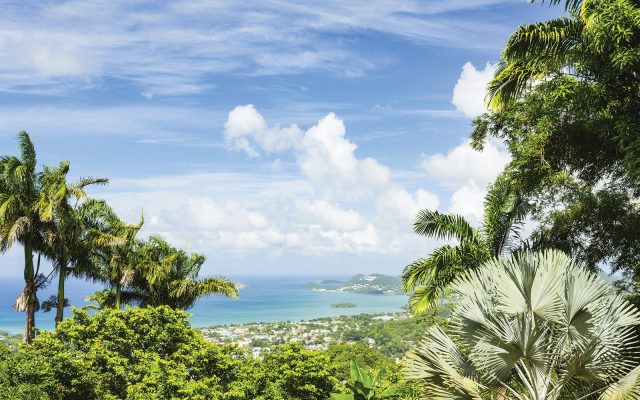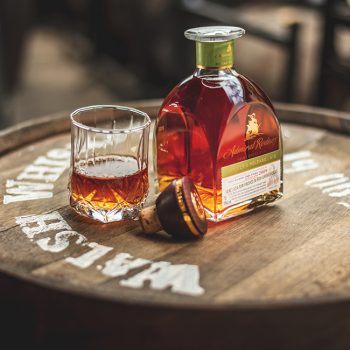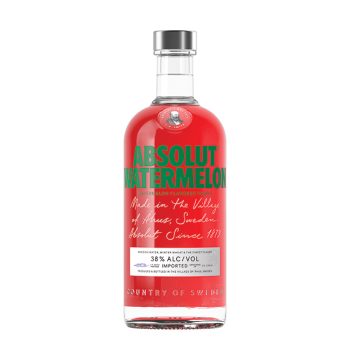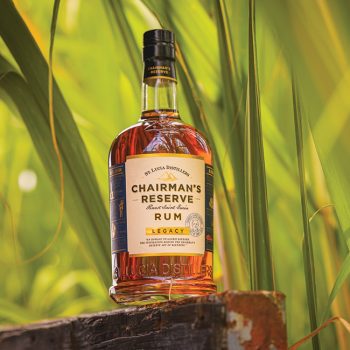Is premiumisation welcome in the Caribbean?
The Caribbean is a hotbed of rum production, but island brands are fighting to convince locals that their premium expressions are worth shelling out for, in the face of competition from international players.

*This feature was originally published in the March 2024 issue of The Spirits Business magazine.
Think of the Caribbean and you can’t help but think of rum. Historically and culturally embedded, it remains the most consumed spirit in the islands, massively outweighing any other category.
In 2022, it accounted for 56% of spirits volumes, IWSR Drinks Market Analysis says. The runner-up, whisky, was at just 13%.

But when it comes to what is perceived as premium in the market, that’s a different story. “Rum is largely viewed as a utilitarian spirit among locals,” says Chris Budzik, market analyst, IWSR. “Often the highest-volume spirit brand in a given country will be an unaged white or gold rum with a value or standard price point.”
Margaret Monplaisir, chief executive officer at Saint Lucia Distillers’ group of companies, adds: “In the face of exposure to foreign cultures and international marketing endeavours there is local aspiration for luxury, and there is a perception among locals that foreign spirits possess a superior and more luxurious quality.
“Rum is cherished as a comfort beverage,” she adds, “best savoured in the company of family and friends at home, or in laid-back rum shops where image and status hold minimal importance.”
The ‘status’ drinks in the region have long been strong, globally recognised international imports, such as Hennessy Cognac, Johnnie Walker whisky, Campari, Absolut Vodka, and more. At the bars, fêtes, events, parties, carnivals, and major cultural events, they’re the drinks to see, and be seen with, their names dominating branding banners. You’d be right to ask whether these ‘status’ brands in the region are any different to what is percieved as luxury around the world?
But in recent years the rum companies of the Caribbean have been pushing to premiumise rum internationally, offering long age statements, single-origin and limited editions to rival the price points of Scotch, and seeking to establish GIs. So where does that leave rum domestically? Is there a battle for local hearts and minds?
“The premium rum category is growing in Barbados,” says Anies Jordan, commercial manager at Barbados-based Mount Gay, “as consumer appetite grows to aspire to something different, authentic, and special.” In the push to premiumise, it’s fair to say Mount Gay – reputedly the world’s oldest-running rum distillery, at over 320 years old – is one of the leaders. In October it launched its Single Estate Series, with the first product, Release 01, using molasses made from sugarcane harvested at the Mount Gay estate in 2016 and 2017, aged in ex-Bourbon casks. Having secretly bought back 131 hectares of the old estate in 2015, the launch aims to showcase the brand’s heritage, as much as the individual character of Bajan terroir.
The nuance of terroir
Other notable distilleries to take on the exploration of terroir include Grenada’s Renegade. The project to promote the nuances of single-cane rum from specific farms, even fields, and create rums “that can be taken as seriously as the world’s greatest single malts” comes from Mark Reynier, the man behind Bruichladdich’s revival, and Waterford Distillery. Such premium launches are eyeing an international market. But what’s the appetite locally?
“The innovation and introduction of Mount Gay’s Single Estate Series was a monumental step further into the ultra-premium rum category,” adds Maggie Campbell, estate manager at Mount Gay. Though premium rum has gained popularity in the region overall, she says, “in the Caribbean it is important to offer everyday staples that take centrepiece in a part of the cultural fabric of island society. In recent years, rum brands have engaged with local consumers to embrace how special rum is.”
Mount Gay’s recent, exclusive local launches have included the Republic Blend in 2021, a limited run of 195 bottles made of rums aged between 10 and 30 years, to mark Barbados’s transition to a parliamentary republic. And another was Black Barrel Cask Strength (66 % ABV), a distillery-exclusive rum finished in charred Bourbon casks.
Beyond rum, there are signs that younger drinkers are shifting their preferences. Chris Budzik, market analyst for the IWSR, adds: “Outside of rum, blended Scotch and Cognac have historically been the most popular categories among locals due to the badge value they hold. But, recently, blended Scotch’s ‘trend’ factor has waned a bit due to consumer fatigue and younger consumers of legal drinking age desiring something new. That new thing is bitter spirits. Agave spirits have also gained popularity over the past few years, but product allocations limit availability.”
David Mizrahi, Pernod Ricard’s managing director Caribbean and Central America, adds another emerging contender to that list. “We are seeing space open up for new brands,” he says. “On our side, there’s Skrewball (Peanut Butter Whiskey), which we acquired [a majority stake in] in May 2023. It’s massive business for us in Puerto Rico; in three years, it went from nothing to around 20,000 cases.” The firm has pledged to put a lot of marketing behind it in the wider Caribbean this year.
Alongside winning a “value whisky war” against rivals Diageo and Bacardi, Mizrahi agrees that the growth of agave-based spirits is one to watch, driven substantially by US visitors to the region. “Our third battleground is to defend or to win in white spirits. That is with Absolut, the upcoming gin trend, and with Tequila.”
It launched Olmeca Altos Tequila in Dominica in September, and will take it to Puerto Rico – the region’s second-largest market – in the next four to five months. Código 1530 has been rolled out across St Barts, St Martin, and the Cayman Islands.

“I would say, there’s also a big explosion of gin,” adds Mizrahi, “not equally in all of the markets, but we’re doing great business in the Dominican Republic, with Beefeater.”
Another new launch, Absolut Watermelon, saw its rollout for the Caribbean during the Trinidad carnival in February. Claiming a 60% share of vodka in that market, it’s a priority brand for Pernod, and its popularity is buoyed by its sponsorship of and presence at key cultural events, such as carnival. “That’s a big, big event for us,” adds Mizrahi. “We invest a lot of money into those couple of days. It’s a time where it’s important to be out there, but it’s a time when consumers also want to know who is close to it. We have to connect with consumers in authentic and relevant ways. Cultural relevance builds emotional connections with a brand.” Further Absolut launches are planned.
Back to rum, and cultural relevance is a major factor. Though brands in the market have incredible heritage, and long, hard earned places in consumer’s daily lives, there perhaps hasn’t been a deep appreciation locally of the richness of many locally produced rums. It can be easy to overlook what you’re used to. “Rum produced in the Caribbean will always be available in the domestic market at affordable prices and therefore accessible to locals,” adds Monplaisir.

Saint Lucia Distillers’ group of brands include, on the aged side, Chairman’s Reserve and Admiral Rodney, and on the unaged, flavoured range, Bounty, and the overproof Denros. “Each distillery produces specific brands to cater to the preferences of the local market, solidifying rum as an integral part of our cultural identity and a household staple.
“We need Caribbean people to appreciate rum as a premium spirit with well-defined standards. There is still work to be done to enhance the perception of rum, instilling pride among Caribbean people in embracing our heritage.”
She adds that biting economic pressures have resulted in a notable shift in alcohol spending. Consumption has decreased, Monplaisir notes: “But there’s been a clear trend toward consumers choosing higher-quality and premium products.”
One producer ready to showcase its heritage as it approaches its 200th anniversary milestone later this year is Trinidad’s Angostura. It plans a year of festivities, with new product releases, commemorative limited editions, and anniversary parties.
Beyond the Angostura rum range itself, its brands include the prolific White Oak range of unaged flavoured rums, and the high-proof (75% ABV) Forres Park puncheon rum. In 2022, Angostura unveiled the high-end Zenith globally. With an RRP of £2,500 (US$3,169), it’s made with rare liquid from the closed Caroni Distillery, aged from 20 to 23 years.
Locally, it launched limited edition Symphony, a sipping rum comprising a blend of five- to 10-year-old mixed-origin rums, from both pot and column stills.
“As Trinidadians, we have a high sense of national pride,” says Lawn Davis, Angostura marketing manager. “But local premium brands may struggle against the international brands coming in. It’s because we may take it for granted. But as we go on with our marketing activities, we see consumers want to know more, especially as we approach our 200-year anniversary.”
Pride in local products
Sophie Charles-Barber, Angostura executive manager – marketing, agrees, hinting at future launches. “It’s about reinstalling pride in the local product offering,” she says. “It’s about making ‘local’ feel as special and as premium as international. That’s not just in spirits, that’s a trend across all categories where we really need to instil, and support, and represent local brands. As a rum producer, that’s something we have to tap into. Local pride is something a lot of Trinidadians have, but sometimes that’s not always something seen in premium rum.”
Related news
Cocktail stories: Speed Bump, Byrdi
